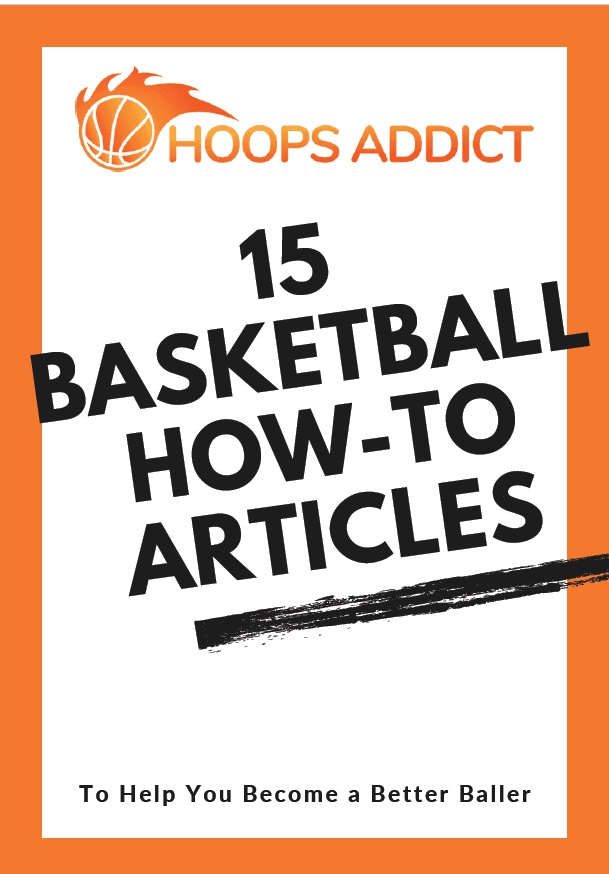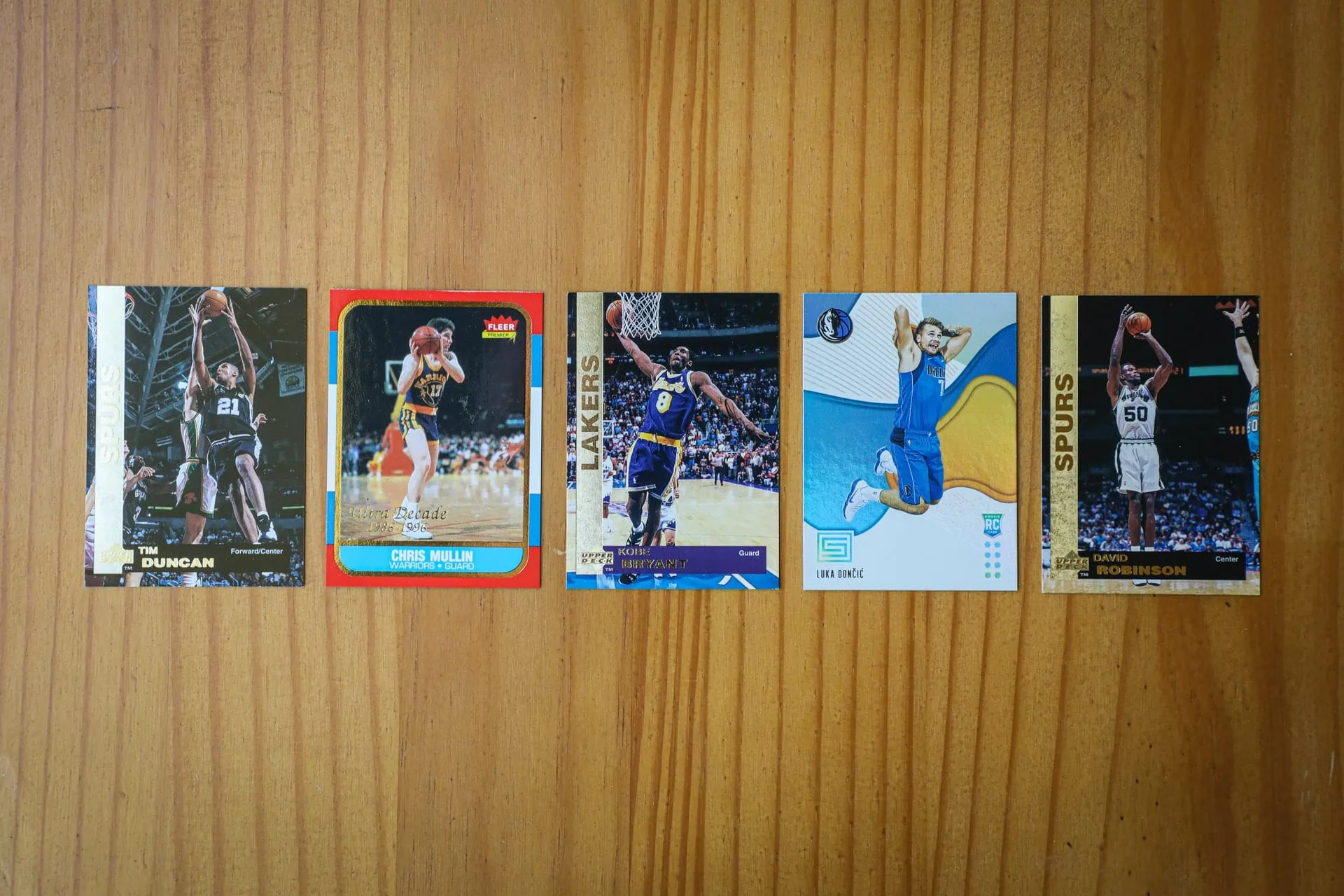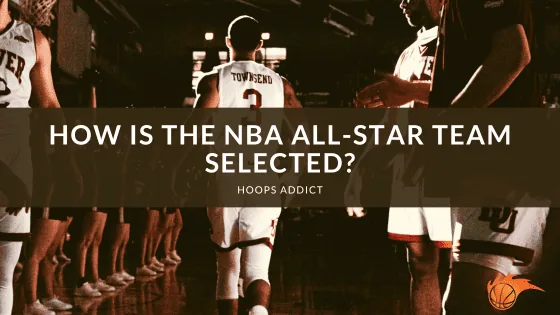There are many things to consider when deciding if basketball cards are a good investment. On the one hand, they are a tangible asset that is collectible and has the potential to go up in value over time. However, there are also some risks associated with investing in basketball cards. In this blog post, we will weigh the pros and cons of using basketball cards as an investment so that you can make an informed decision!
 What are Basketball Cards?
What are Basketball Cards?
Basketball cards are physical cards that feature a player on the front and their statistics on the back. They are usually made of cardboard or paper and are collectible items. Many people enjoy collecting basketball cards because it allows them to connect with their favorite players tangibly. In addition, basketball cards can be a fun hobby and an excellent way to pass the time.
The value of basketball cards can vary greatly depending on the player, the card, and the card’s condition. Some basketball cards are worth hundreds or even thousands of dollars, but others may only be worth a few dollars. So, to avoid losing money on basketball card investments, it’s essential to do your research to find out if the cards you are interested in are going up in value.
 Are Basketball Cards Going Up in Value?
Are Basketball Cards Going Up in Value?
The value of basketball cards has been on the rise in recent years. In general, older cards are worth more than newer cards. This is because there are fewer old cards in existence, and they are considered rarer. In addition, some players are more popular than others, and their cards may be worth more as a result. For example, cards featuring LeBron James are typically worth more than cards featuring other players.
There are a few risks associated with investing in basketball cards. First, the value of the cards can fluctuate. Keep this in mind if you’re considering basketball cards as an investment. In addition, basketball cards can be damaged easily, which can also affect their value. Finally, it is essential to remember that basketball cards are a speculative investment, and there is no guarantee that you will make money from them.
What are the Pros of Investing in Basketball Cards?
There are a few pros associated with investing in basketball cards:
1. They are tangible assets that you can hold on to.
2. The value of basketball cards has been increasing in recent years and is expected to continue to do so.
3. Basketball cards can be a fun hobby and can be a good way to pass the time.
What are the Cons of Investing in Basketball Cards?
There are also some cons associated with investing in basketball cards:
1. There is no guarantee that the value of the cards will continue to go up.
2. They can be easily damaged, and this can affect their value.
3. It is important to remember that basketball cards are a speculative investment, and there is no guarantee that you will make money from them.
So, are basketball cards a good investment? The answer is that it depends. If you are looking for a tangible asset, are willing to take on some risk, and are interested in a hobby, then investing in basketball cards may be a good option. However, if you are not comfortable with risk or are looking for a guaranteed return on your investment, basketball cards may not be the best option.
Whether or not to invest in basketball cards is ultimately up to you. We hope that this with this blog post, you can gain a better perspective on investing in basketball cards from which you can make an informed decision!
 What are the Most Popular Basketball Card Brands?
What are the Most Popular Basketball Card Brands?
There are a few different brands of basketball cards. The most popular are Topps, Upper Deck, and Panini. Topps is the oldest brand of basketball cards and has been around since 1950. Upper Deck was founded in 1988 and is known for its high-quality cards. Panini is a newer brand founded in 2010.
The sheer number of brands you can choose from can make it difficult to start investing in basketball cards. So, to help you out, we’ve categorized some of the most popular brands right now according to the level of prestige given to them by collectors and investors.
Low-end
- NBA Hoops
- Donruss
Mid-end
- Prizm
- Mosaic
- Optic
- Select
- Revolution
High-end
- National Treasures
- Immaculate
- Flawless
- Opulence
However, because a brand belongs to a specific tier, it’s automatically low-value. A Johnathan Kuminga rookie card from NBA Hoops, for example, just sold for $2,025 in a recent eBay transaction.
Topps, Upper Deck, and Panini are the most popular basketball card brands. However, there are a few other brands that are also worth considering. Just remember to do your research before investing in any basketball cards!
 What Basketball Cards Are Worth Investing?
What Basketball Cards Are Worth Investing?
The most valuable basketball card is the Michael Jordan rookie card from 1984-85. It is worth an estimated $500,000! Other valuable cards include the LeBron James rookie card from 2003-04, worth an estimated $250,000, and the Kobe Bryant rookie card from 1996-97, worth an estimated $200,000. So, if ever you find any of these cards in a garage sale, don’t hesitate to pull the trigger on them.
Generally, a pack of NBA cards contains a couple of base cards and an insert – a special card that’s usually more valuable than the other cards in the pack. Some premium packs, however, can contain all inserts. These inserts are generally the types of cards with high demand from collectors.
Here are the different types of valuable inserts:
Rookie Cards
Even if you’re not that into basketball cards yet, you’ve probably already noticed that Rookie Cards are often at the top of the list in terms of value. This phenomenon is due to a couple of interesting reasons.
Firstly, rookie cards tend to be the oldest cards of a particular player. For certain collectors, just the age of the card alone is already a desirable feature.
Secondly, for investors, rookie cards have the most potential for profitability. Since a player gets his rookie card released during his first season in the NBA, nobody knows whether they will be a star in the league yet. So this speculative aspect of rookie cards gives them value early on.
Of course, there are also risks associated with investing in rookie cards. The main risk is that the player might not have a successful NBA career. If this happens, the card’s value will go down, and you might even lose money on your investment.
So, if you’re thinking about investing in rookie cards, remember to do your research first and only invest in players you believe have a good chance of having a successful NBA career!
Parallels
Sometimes you’ll find two similar cards from the same brands. However, some card versions might have unique themes or overall card designs. These are called parallels. These special cards can be pretty rare and often carry a serial number. So, if you find a card that says it’s 1 of 3, you probably have a card worth holding on to until you get a proper appraisal.
Autograph
Autograph cards are one of the most valuable types of cards. The signature, which makes it rarer, carries most of the card’s value. The value often hinges on the star level of the particular player. These collectibles also tend to be more popular with collectors as well.
Memorabilia
Memorabilia cards are also quite valuable. They usually contain a piece of material used by the player, such as their jersey or shoes. These cards may even have a portion of the hardwood floor in some cases. Perhaps it’s because of the novelty, and maybe it’s because of the cost of making these cards; whatever the case, these memorabilia cards are some of the most sought-after cards in the world.
 4 Things to Consider When Investing in Basketball Cards
4 Things to Consider When Investing in Basketball Cards
Consider your Strategy
Flipping: If you intend to buy a card and sell it after a couple of weeks for a quick profit, you’re a card flipper similar to a day trader. As a card flipper, you may be able to make a profit in the short term, but you might also miss out on big paydays in case the card that you just sold for a small profit goes on to become one a
Long-Term investing – If you’re in it for the long haul and are patient enough to wait for years or even decades, you’re a long-term investor. While you might not make as much money in the short term, you could eventually sell your card for a higher price.
Consider Building a Personal Collection
Whether we admit it or not, basketball cards were meant to be enjoyed as fans, not as investment vehicles. So, if you’re a big fan of a specific player or team, you might want to consider building a personal collection instead of investing in cards.
Your personal collection will always have sentimental value to you. No matter how the market fluctuates, your collection will always be worth something to you.
Do Your Research
Like any investment, it’s essential to do your research before putting your money in. Make sure you know what you’re buying and that you are paying a fair price for it.
First, check if there is demand for the player on the card. An excellent way to do this is to see if people are actively buying and selling the player’s cards on sites like eBay. It would be best if you also tried to find out how much the player’s other cards are worth. You can do this by looking up completed listings on eBay or checking out Beckett’s price guide.
Second, examine the card’s condition. The condition of a card can have a significant impact on its value. For example, a card in mint condition is worth more than a card with bends, creases, or other damage.
Finally, make sure you are buying from a reputable source. Unfortunately, many scammers are out there looking to take advantage of unsuspecting collectors. So, only buy from sources that you trust.
By following these tips, you can be sure that you are making a wise investment in basketball cards. Maybe your cards will be worth enough to fund your child’s college education one day! Until then, enjoy the hobby and have fun.
Get an Appraisal
Once you’ve done your research and are ready to purchase, it’s always a good idea to get an appraisal from a professional. An appraisal from a professional such as a card grader will help you make sure that you are paying a fair price for the card and give you an idea of what the card is worth.
Basketball cards can be an excellent investment, but only if you go about it smartly. Make sure to do your research, get an appraisal, and consider your strategy before making any decisions. With a little bit of knowledge and effort, you could be on your way to making some serious profits!
 How to Sell Basketball Cards
How to Sell Basketball Cards
If you’re looking to sell your basketball cards, there are a few things you need to keep in mind:
1. You need to make sure that you are pricing your cards correctly.
2. You need to find the right buyer for your card.
3. It would be best to protect your investment by packaging your card properly.
Pricing Your Cards
The first step in selling your basketball cards is to price them correctly. You don’t want to overprice your cards and scare away potential buyers, but you also don’t want to underprice them and leave money on the table.
The best way to determine a fair price for your card is to look at completed listings on eBay. You can also check out Beckett’s price guide to get an idea of what your card is worth.
Once you have a good idea of what your card is worth, you can set your prices. If you are selling multiple cards, you can offer discounts for bulk purchases. You can also provide free shipping to sweeten the deal for potential buyers.
Finding the Right Buyer
The next step is to find the right buyer for your card. You want to find a buyer willing to pay a fair price for your card and who you feel comfortable doing business with.
There are a few different ways to find potential buyers for your card. For example, you can list your card on eBay, post it on a classifieds site like Craigslist, or reach out to local collectors.
You can also try contacting your local card shop to see if they are interested in buying your card.
Protecting Your Investment
Once you’ve found a buyer for your card, it’s vital to protect your investment by packaging the card properly. You don’t want your card to get damaged in the mail, so be sure to use a top-loader or hard case when shipping it.
It would help if you also insured your package for the card’s full value. Doing so will protect you if the card is lost or damaged in transit.
 Where to Buy the Best Basketball Cards
Where to Buy the Best Basketball Cards
Now that you know a little more about basketball cards, you might wonder where to buy the best ones. The truth is, there are a lot of great places to buy basketball cards. You can find them at your local card shop, online retailers, or even at some sporting goods stores.
The best place to buy basketball cards is wherever you can find the best deals. Of course, you might have to shop around a bit to find the best prices, but it will be worth it.
Social Media and Online Marketplaces
Online marketplaces are great. They have a wide selection of cards, and you can usually find some good deals. But, they’re also a home for scammers. So, you need to be careful when buying cards from online marketplaces such as Facebook Marketplace or eBay. Make sure to only purchase from reputable sellers and pay with a credit card so you can dispute any charges if something goes wrong.
Local Card Shop | Hobby Store
Local card shops are also great places to buy cards. They usually have a good selection of cards, and the prices are often negotiable. Plus, you can get to know the staff and build relationships with those who work there. Establishing rapport with the team can come in handy if you ever need help finding a specific card or getting a good deal on a purchase.
Wrapping Things Up: Are Basketball Cards a Good Investment?
So, are basketball cards a good investment? The answer is a resounding yes, but only if you know what you’re doing. They can be a great way to make some money, but you need to be careful how you price and sell your cards. You also need to find the right buyer and protect your investment by packaging your card correctly.
All of these steps can take a lot of work. So, while we’re saying basketball cards are good investments, it doesn’t mean that it will be easy. But, if you’re willing to put in the work, you can make some money by selling basketball cards.
If you are thinking about selling your basketball cards, do your research and shop around for the best deals. And, if you are looking to buy cards, local card shops and online marketplaces are great places to start your search.
Want to get better at basketball?
Join our newsletter & get our comprehensive
101-page basketball guide.
Become a better baller today 👇


 What are Basketball Cards?
What are Basketball Cards? Are Basketball Cards Going Up in Value?
Are Basketball Cards Going Up in Value?
 What are the Most Popular Basketball Card Brands?
What are the Most Popular Basketball Card Brands? What Basketball Cards Are Worth Investing?
What Basketball Cards Are Worth Investing?

 How to Sell Basketball Cards
How to Sell Basketball Cards Where to Buy the Best Basketball Cards
Where to Buy the Best Basketball Cards

